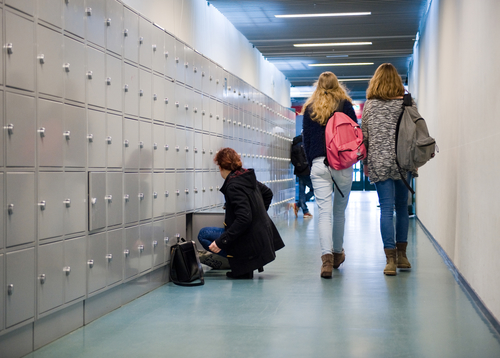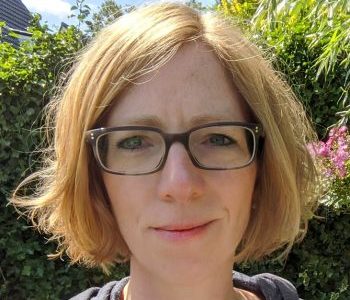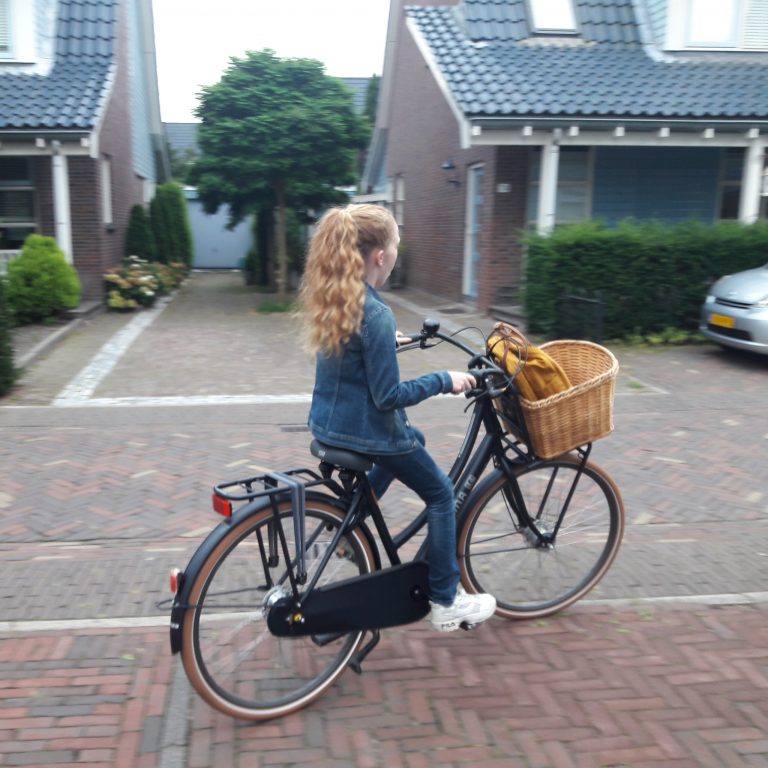Blogwatching: Delft MaMa on the transition to Dutch secondary school


The Delft Maternity And Motherhood Assistance (Delft MaMa) is a non-profit organisation promoting the well-being and integration of international mothers-to-be and mothers of young children in and around Delft, The Netherlands. On their blog, they share articles and news on parenting in Delft.
The transition from Dutch basisschool (primary school) to middelbare school (secondary school) is a big milestone for kids. It’s good for parents to be aware of what to expect during this process. Andrea, whose daughter is now in middelbare school told Delft MaMa about her family’s experience.
Delft MaMa: When did you move to the Netherlands?
Andrea: We moved from Germany to Delft in 2006. Later, we moved to Ypenburg. I joined Delft MaMa in its early days and made a lot of friends. Now that my daughter is older, I am less active in the community. I work as a self-employed sewing teacher.
Delft MaMa: That sounds very positive. It’s interesting that there were no cito exams given in the basisschool. When did you start thinking about the transition to middelbare school?
Andrea: Group 7 and 8 are critical years. Kids are guided by their teachers and encouraged to visit different middelbare scholen on open dagen (open days). That’s what we did. These visits are very useful. At our basisschool there was an information evening for group 8; however, we did not wait for that. We arranged visits on our own already in group 7, not waiting until the last minute. This way we had the chance to visit more schools. You can only schedule a couple of them on the same day.

Delft MaMa: I can imagine that there are many options. How do children know which school type to look for? Is it related to their interest areas?
Andrea: The key factor is the school advice recommended by the teacher for the next year. The advice is based on the performances, skills, and grades of the last years, not only on the last test results in group 8. In our school, it’s also discussed by all teachers, not only the mentor of a kid. All teachers know every kid and can give a good assessment.
In some countries, parents decide on the school type despite the advice. However, in the Netherlands, we learned that it is important to stick to the advice.
I would like to point out one thing about the school system in the Netherlands: Some teachers give a dubbeladvies (double recommendation), two options instead of one. Most middelbare scholen will only allow admission based on the lower of these recommendations. It is then up to the pupil’s work and teacher’s assessment at the end of the year, if they can be admitted to the higher level.
The first year of middelbare school is known as brugklas, or bridge class. It is a transition year. This is the time for kids to adapt to the changes and also demonstrate their abilities if they want to move to a higher level. This is a positive aspect of education in the Netherlands.
Some schools have extra bridge classes for all kids with dubbeladvies. Some schools place the kids in the higher section, some in the lower. At the end of the brugklas it will be decided, in which section the kid continues.
In our case my daughter got a VWO (pre-university education) advice and we looked at schools which offer that.

Delft MaMa: Was the distance between school and home a decision-making factor for you?
Andrea: As kids get older, biking and public transportation are options. My daughter cycles. For her, the tram is not an option. It would take much longer. Cycling to school, even 7 or 10 km is completely normal here, no one questions it. Many kids do it; they go together; it’s part of their growing and getting more independent.
Delft MaMa: From the many school options, how did you make a decision? What was your daughter’s decision and did that conflict with yours?
Andrea: There were two schools my daughter visited and liked. Most of her friends were going to one of them, and we worried that her decision would be based on that. In the end, she chose what she felt was best for her. Now she is going to a school in Voorburg. I realized that I did not need to worry so much about the school selection process and to trust my daughter’s choice.
Delft MaMa: As foreigners, we tend to compare everything with our home countries. What are some differences in education between Germany and the Netherlands?
Andrea: Sure, I totally get it. The system in Germany has much more pressure on the kids. The school system is less flexible.
The kids start around age six. The difference between kindergarten and primary school is much bigger. There is more pressure on the kids. The transition to secondary school is also two years earlier in Germany, therefore I really like the system here in the Netherlands.
The transition to middelbare school was scary at first but after all it turned out fine! My daughter is very happy about her selection and we as parents are also observing that she is performing well at her current school.
This post originally appeared on the Delft MaMa blog and has been edited for length.
Every month we feature a blog post from one of our favourite bloggers. Interested? See if your blog meets the criteria to be included on the site.
Thank you for donating to DutchNews.nl.
We could not provide the Dutch News service, and keep it free of charge, without the generous support of our readers. Your donations allow us to report on issues you tell us matter, and provide you with a summary of the most important Dutch news each day.
Make a donation